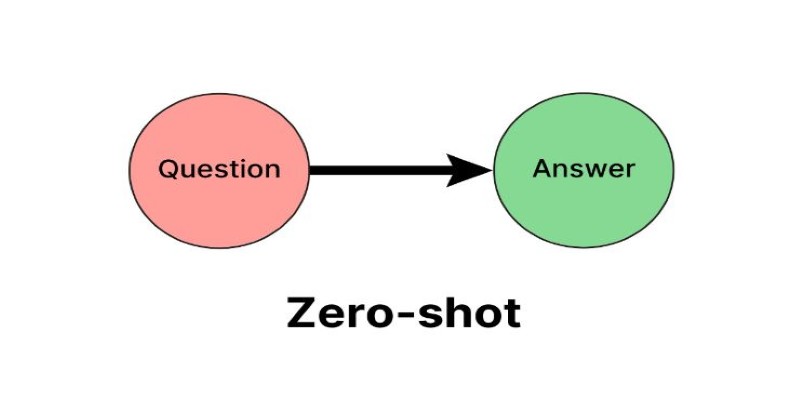Advertisement
Planning a trip should feel exciting, not overwhelming. But between comparing flights, finding places to stay, creating day-by-day plans, and making sure everything fits your budget, it’s easy to get lost in the details. That’s where AI travel tools step in. They help take the load off by organizing, suggesting, and adjusting plans without making you dig through five tabs at once.
Here’s a look at eight AI travel planner tools that do more than just book tickets—they actually think a bit like a helpful friend who’s good at planning. Each one has its own way of working, so depending on how hands-on you want to be, there’s likely one here that fits how you travel.
If you like the idea of telling someone where you want to go and letting them take care of the rest, Roam Around might be up your alley. You type in a city, and it comes up with a full-day itinerary—morning to night. It doesn’t ask too many questions upfront, which is great if you want something quick and don’t feel like dealing with filters.

The itinerary is based on popular spots and general travel trends, so while it won’t account for your love of lesser-known art museums or avoiding crowds, it does give you a solid starting point. You can always edit it after if you have more specific plans in mind.
This one talks to you like a chat assistant, and that makes a big difference. You tell it what kind of trip you’re after—maybe you’re going to Portugal and want a mix of beach and city, or you’re working with a tight budget. Layla takes all of that and starts building something realistic. It links to flights and stays, so you'll not have to leave Googling afterward.
Layla works best when you have a few pieces of the puzzle already in place. Suppose you know where and when it'll get you the rest. If you're still choosing between cities, it might not be the tool for that.
Wonderplan takes a more detailed approach. It gives you a daily plan, and it adds little notes that help—like how far apart things are or how long they usually take. It doesn't just throw big-name attractions at you. You can also add your preferences, which shapes what it suggests.
It’s helpful for people who enjoy seeing things laid out visually and knowing how the day will flow. If you like having timelines or want to avoid backtracking all over a city, Wonderplan is worth looking into.
Vacay is like having a chat with a local who knows the area inside out. It works like a chatbot, but its responses are relaxed and easy to follow. It’s especially good if you’re stuck between options. Ask it whether to go to Florence or Rome for a shorter trip, and it’ll give a comparison that’s actually useful.
What sets it apart is how conversational it feels. It doesn't overload you with links or endless filters. Just give clear answers, and if you like the sound of something, you can ask it to go deeper into that area or activity.
iPlan.ai asks a few questions to get a sense of your style. Once it has that, it puts together a whole plan that includes attractions, estimated visit times, and a flow that makes sense. If you’re short on time or traveling to a place you don’t know well, it helps make the unfamiliar feel a little more manageable.
It doesn't go too deep into restaurant suggestions or ticket bookings, but getting a structured view of your trip works well. It's like a digital outline you can tweak as you go.
If you're traveling by car, Curiosio does something a little different. It creates road trip plans based on your starting point, how much time you have, and what you want to see. It’s not made for city hopping with flights, but for cross-country drives or regional loops, it fits the bill.
You can choose whether you want scenic routes, historical sites, or family-friendly stops. Once you select your preferences, it maps out a route and fills in suggestions along the way. It even considers rest time and overnights, which helps with pacing.
For anyone who likes to be in control, Trip Planner AI is a good pick. It lets you change everything—start times, how long you stay somewhere, what kind of restaurants you prefer. It shows your trip on a map, so you can make sure you’re not wasting time going back and forth.

Once it creates your plan, you can export it or share it. That’s handy if you're traveling with others and need to coordinate. It's also a nice bonus that you can access it without having to log in right away.
GuideGeek works through WhatsApp, which is probably the most surprising thing about it. You just send it a message like you would to a friend—something as casual as “Hey, I’m going to Tokyo for a week, what should I see?”—and it replies with suggestions almost instantly. You don’t need to download a new app or learn a new platform.
It can help with things like what to pack, which train pass to get, or whether a certain area is better for a short stay. Since it uses AI trained on real travel content, its answers are current and not just based on the same top 10 lists floating around online.
There isn’t one tool that fits everyone. Some people want full control, while others prefer suggestions they can tweak. What’s useful is that these AI travel planners don’t just spit out lists—they build something with a bit of thought behind it. You won’t get the same plan twice, and they tend to improve the more you use them.
Whether you're looking for a quick weekend escape or a more complex international trip, these tools give you a way to skip the spreadsheet phase and get straight to the good part—looking forward to the trip itself.
Advertisement

Explore the top 8 AI travel planning tools that help organize, suggest, and create customized trip itineraries, making travel preparation simple and stress-free

Tired of missed calls and endless voicemails? Learn how Synthflow AI automates business calls with real, human-like conversations that keep customers happy and boost efficiency

Learn what vector databases are, how they store complex data, and why they're transforming AI, search, and recommendation systems. A clear and beginner-friendly guide to the future of data storage

Explore how labeled data helps machines learn, recognize patterns, and make smarter decisions — from spotting cats in photos to detecting fraud. A beginner-friendly guide to the role of labels in machine learning

Ever wonder why real-world data often has long tails? Learn how the log-normal distribution helps explain growth, income differences, stock prices, and more

Looking for smarter AI that understands both text and images together? Discover how Meta’s Chameleon model could reshape the future of multimodal technology

The Dead Internet Theory claims much of the internet is now run by bots, not people. Find out what this theory says, how it works, and why it matters in today’s online world

Think of DDL commands as the blueprint behind every smart database. Learn how to use CREATE, ALTER, DROP, and more to design, adjust, and manage your SQL world with confidence and ease

Learn what Zero Shot Prompting is, how it works, where it shines, and how you can get the best results with simple instructions for AI

Wondering if there’s an easier way to add up numbers in Python? Learn how the sum() function makes coding faster, cleaner, and smarter

Learn how to build an AI app that interacts with massive SQL databases. Discover essential steps, from picking tools to training the AI, to improve your app's speed and accuracy

Learn what stored procedures are in SQL, why they matter, and how to create one with easy examples. Save time, boost security, and simplify database tasks with stored procedures